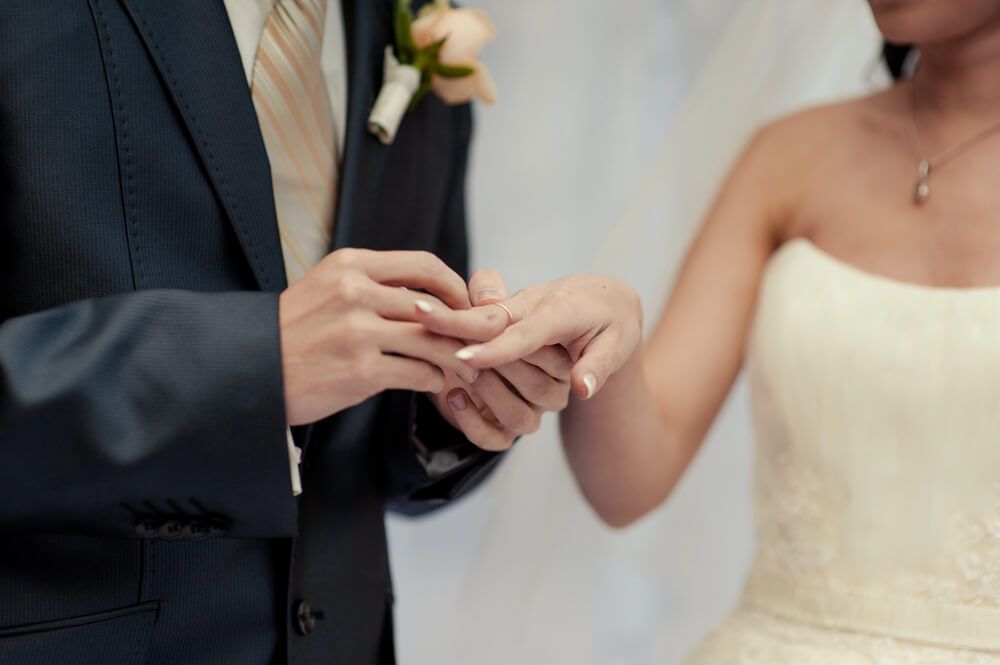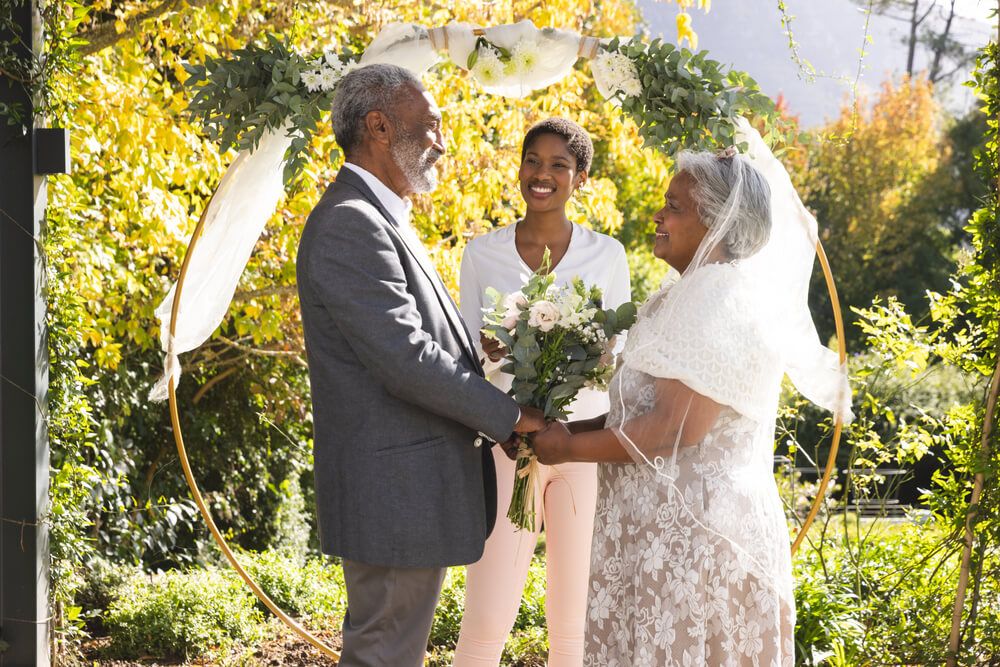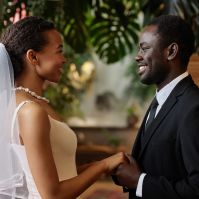
When it comes to your wedding, one of the most important decisions you'll make is choosing the right officiant. After all, this person will be the one who helps create the atmosphere and tone for one of the most meaningful moments of your life. It's a big decision, but did you know you can officiate your own wedding in some states? With so much riding on this decision, who better than you to ensure the day runs smoothly and is truly reflective of both you and your partner?
Can You Legally Officiate Your Own Wedding?
Whether you can legally officiate your own wedding depends on where you’re getting married. The following states allow self-solemnization:
- California
- Colorado
- Illinois
- Kansas
- Maine
- Nevada
- Pennsylvania
- Wisconsin
The District of Columbia also legally recognizes ceremonies officiated by the couple themselves.
If you are getting married in an area where you can conduct your own wedding ceremony, make sure to review the local requirements so you understand the steps necessary for your self-solemnization. For example, like any other wedding you need to obtain the proper paperwork, starting with a marriage license from your county clerk’s office.
In certain jurisdictions, you may also need to complete additional forms to affirm your self-officiated status. It’s crucial to complete all the necessary documentation and file it correctly with the appropriate government office to ensure your marriage is legally recognized. Make sure to check with the office issuing the marriage license to make certain you're following all the necessary procedures.
Additionally, some states may require you to be ordained through a religious institution or other recognized organization. If you are not religious and do not prefer a spiritual ceremony, there are secular options to consider for ordination. For example, the Universal Life Church offers a straightforward online process that doesn’t involve any faith requirements, allowing you to perform weddings without any sort of religious affiliation.
Who Can Officiate a Wedding Ceremony?

If you are getting married in an area that doesn’t allow you to officiate your own wedding, there are several other officiants who can do the job, including:
- Religious leaders
- Judges or justices of the peace
- Professional wedding officiants
- Friends or family members
Even if legal requirements prevent you from officially performing the ceremony, your vision can still guide every aspect of it. By collaborating with the officiant, you can shape the wedding script, choose meaningful readings, and craft your own custom vows to add a personal touch to the event.
Why Should You Consider Officiating Your Own Wedding?
Officiating your own wedding offers some unique benefits that you can’t replicate by hiring a traditional officiant. Practically speaking, you might save some money. Wedding costs can add up quickly, and by taking on the officiant’s responsibility yourself, you free up funds that can be spent elsewhere.
Additionally, you can share your unique love story in a way that no one else can if you officiate your own ceremony. Self-officiated weddings are a truly unique experience, and you'll have the opportunity to express your feelings and experiences in your own words, creating a deeply personal connection to the ceremony.
You also have complete control over the flow of the ceremony. You can tailor the structure to fit your style and beliefs, ensuring the ceremony feels authentic and comfortable for both you and your guests.
Discover How You Can Officiate Your Own Wedding
If you decide it’s right for you and your soon-to-be spouse, you absolutely can officiate your own wedding! By becoming an officiant through the Universal Life Church, you can take control of your big day and create a memorable, intimate experience. If this speaks to you, get ordained and begin planning a ceremony that is truly yours.



